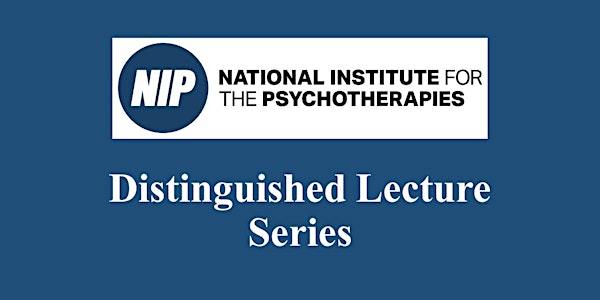
From Reparation to Relational Repair
Overview
From Reparation to Relational Repair: Recognition, Regulation, and Embodied Subjectivity
A crucial phenomenon recognized by Melanie Klein was the deep and pervasive fear of harming the love object and the need to make reparation as an internal process of restoring the sense of goodness, or love, in self, other and world. Of course, Klein attributed this fear to the innate aggression and furthermore did not, as Fairbairn pointed out, distinguish between protecting the internal object and actually making the self good again. founded in the death instinct. Hence the critique of the idea of reparation that has for some time been "all the rage" in the world of critical theory (literature) and has now been adopted by some psychoanalysts. Once we adopt an intersubjective viewpoint, however, and look through the lens of affect regulation, the meaning of aggression and of restoring the self to a sense of goodness appears to us quite differently, and so does the meaning of repair. Understanding how affect dysregulation is recognized and soothed in early development, and following Winnicott’s theoretical line of surviving destruction and Tronick’s observations of rupture and repair, we reinterpret what Klein saw. We grasp how embodied intersubjectivity means self and other are always mutually affecting one another. We come to appreciate the all-important role played by the analyst’s surrender and acknowledgment in regulating the affective “too-muchness” and interactive ruptures of enactments. I have conceptualized this process as moving out of doer and done to into the moral Third; the shared position of witnessing, affirming, and understanding the inevitable experiences of badness, shame, fear of harming and being hurt.
Learning Objectives
1. Participants will come to understand the developments in psychoanalytic theory and in infancy studies, especially mutual affect regulation, that found our new understanding of relational repair.
2. Participants will be able to distinguish between the process of making the object good again as a form of submission or defense (ala Fairbairn) and relational repair that occurs through the recognition of the expression of suffering or resistance to repression.
3. Participants will grasp the clinical process of how acknowledgment repairs, that is, how it facilitates moving out of doer and done to states of the dyad that involve breakdowns of mutual regulation and recognition into a shared Third of accepting painful emotions and experience.
Jessica Benjamin, PhD is best known as the author of The Bonds of Love (1988), which brought a feminist intersubjective perspective into the psychoanalytic field, and of “Beyond Doer and Done To: An Intersubjective View of Thirdness” (2004), the most cited article on PEPweb the last five years and the basis for her most recent book Beyond Doer and done To: Recognition Theory, Intersubjectivity and the Third (2018). This book emphasizes the importance of acknowledgment in therapeutic interaction and in relation to trauma, including collective historical trauma. In addition, she is the author of Like Subjects, Love Objects (1995); and Shadow of the Other (1998). She has been one of the leaders in the relational movement in psychoanalysis since its inception and helped to found the Relational Orientation at the New York University Postdoctoral Program in Psychotherapy and Psychoanalysis where she teaches and supervises. She also teaches and is a board member of the Stephen Mitchell Relational Studies Center of which she is a co-founder. She co-directed and initiated a project for acknowledgment between Israeli and Palestinian mental health professionals during the period 2003-2011. Recently she has written a series of papers on the psychological aspects of domination and destructiveness manifest in the current social world. She is currently exploring the interconnections between affect regulation theory and recognition theory.
Continuing Education
This class is approved for 3.0 CE contact hours for psychologists, social workers, and psychoanalysts:
The National Institute for the Psychotherapies is approved by the American Psychological Association to offer continuing education credits for psychologists. The National Institute for the Psychotherapies maintains responsibility for this program and its content.
The National Institute for the Psychotherapies is recognized by the New York State Education Department's State Board for Social Work as an approved provider of continuing education for licensed social workers #SW-0018.
The National Institute for the Psychotherapies is recognized by the New York State Education Department's State Board for Mental Health Practitioners as an approved provider of continuing education for licensed psychoanalysts #Psyan-0004.
The National Institute for the Psychotherapies is recognized by the New York State Education Department's State Board for Mental Health Practitioners as an approved provider of continuing education for licensed psychologists #PSY-0131.
National Institute for the Psychotherapies (NIP) is recognized by the New York State Education Department's State Board for Mental Health Practitioners as an approved provider of continuing education for licensed mental health counselors. #MHC-0059.
Personalized CE certificates can be downloaded at the end of this event after completing an evaluation form. Attendance for the full duration of the lecture is mandatory for CE credits.
Refunds, & Cancellation Policy
Cancellation requests made more than a week prior to the event will be given a full refund of registration fees. Refunds will not be granted for cancellation requests made within a week of the first day of the event or for no-shows on any of the days event take place.
Good to know
Highlights
- 3 hours
- Online
Refund Policy
Location
Online event
Organized by
Followers
--
Events
--
Hosting
--